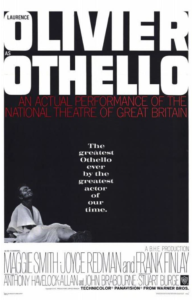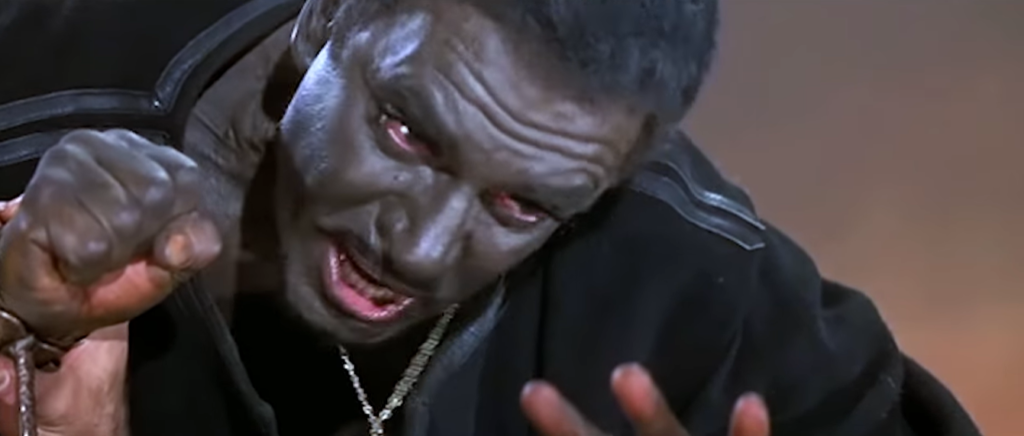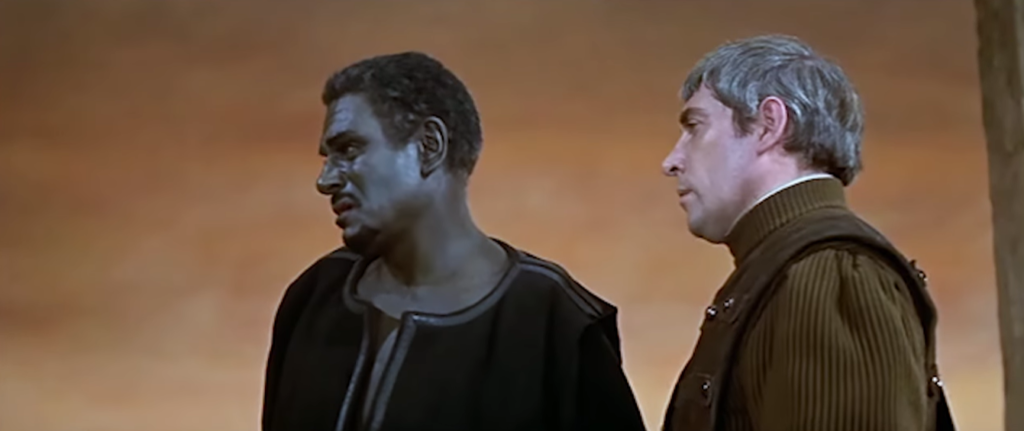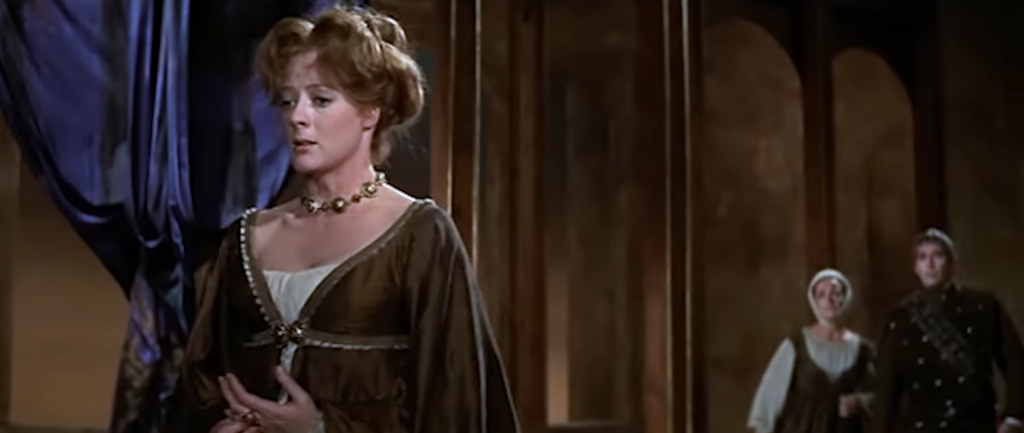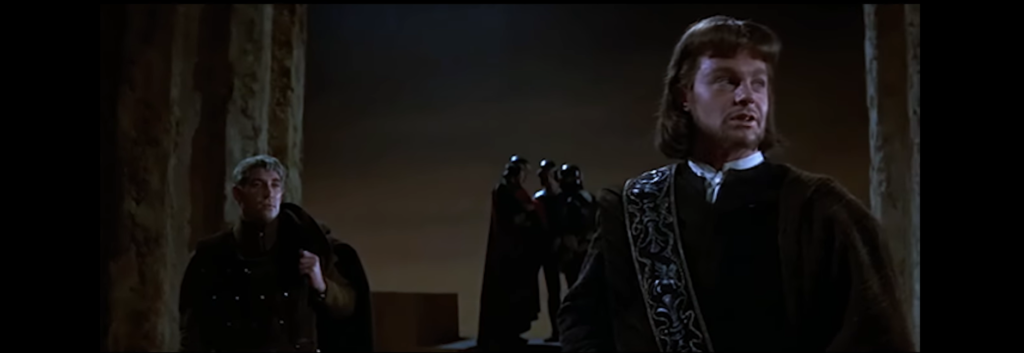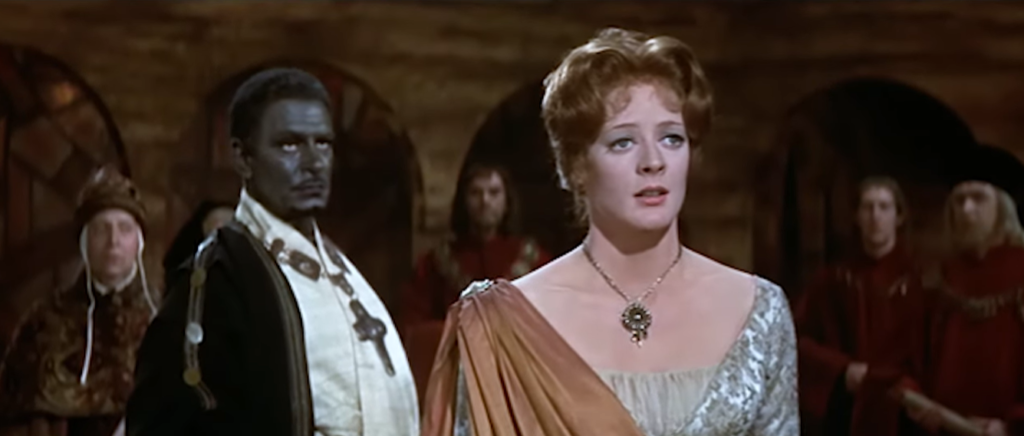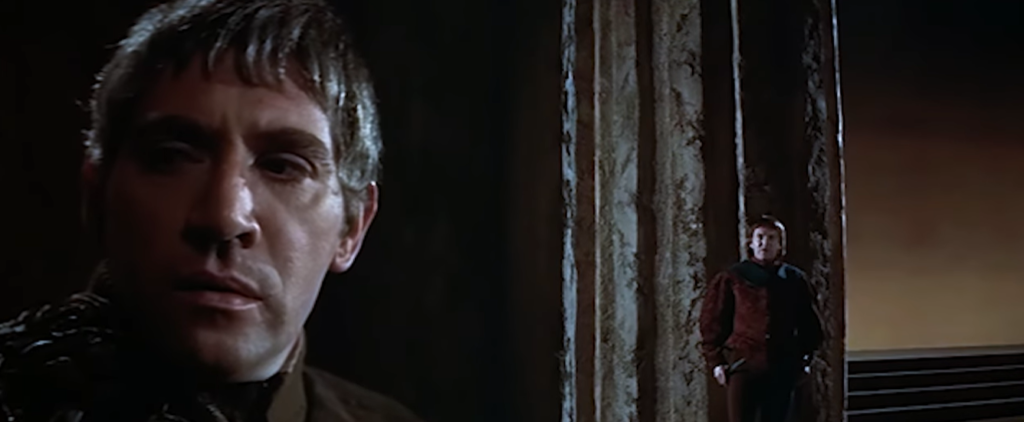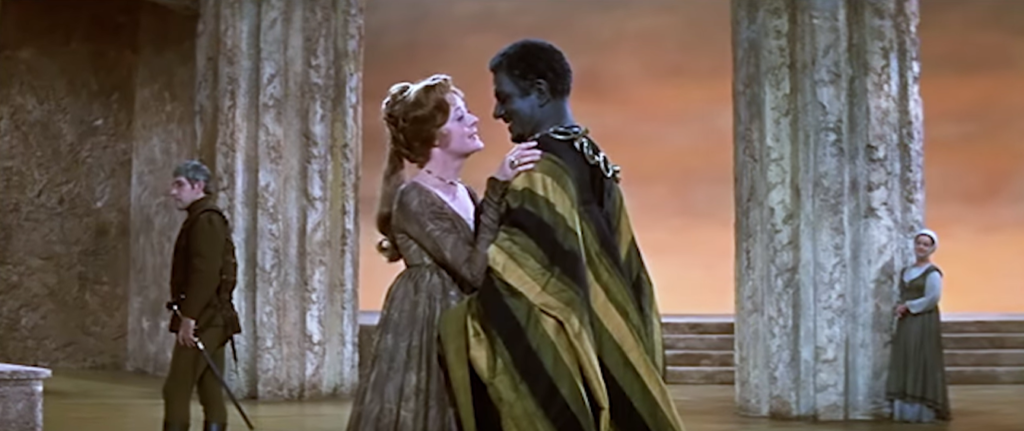Othello (1965)
“Let us be conjunctive in our revenge against him.”
|
Synopsis: |
|
Genres, Themes, Actors, and Directors:
Review: Indeed, Olivier’s choice of characterization (he also lowered his voice, developed an accent, and shifted his walking gait) caused controversy that persists today; see here to read about a music professor who was censured for showing this film at the University of Michigan. Olivier’s appearance is shocking at first — but the larger problem is that his critically lauded performance (Peary nominates him as one of the Best Actors of the Year in Alternate Oscars) is far too overbearing. While Finlay nicely underplays, Olivier comes across as positively apoplectic and childish. Faring much better is Smith as Desdemona, projecting just the right amount of love and loyalty injected with righteous confusion and fear. Overall, the film suffers from being too much of a filmed play; regardless of what one thinks of the performances, the storyline remains as stagy as it was designed to be. In contrast, Orson Welles’ low-budget adaptation is a revelation of cinematic possibilities. Watch for Derek Jacobi in his screen debut as Cassio. Notable Performances, Qualities, and Moments: Must See? Links: |
